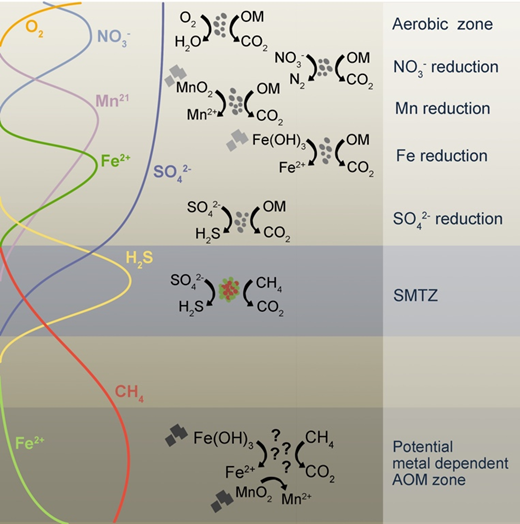Metal-dependent anaerobic methane oxidation in marine sediment: Insights from marine settings and other systems
Anaerobic oxidation of methane(AOM) plays a crucial role in controlling global methan eemission. This is a microbial process that relies on the reduction of external electron acceptors such as sulfate, nitrate/nitrite, and transient metal ions. In marine settings, the dominant electron acceptor for AOM is sulfate, while other known electron acceptors are transient metal ions such as iron and manganese oxides. Despite the AOM process coupled with sulfate reduction being relatively well characterized, researches on metal-dependent AOM process are few, and no microorganism has to date been identified as being responsible for this reaction in natural marine environments. In this review, geochemical evidences of metal-dependent AOM from sediment cores in various marine environments are summarized. Studies have showed that iron and manganese are reduced in accordance with methane oxidation in seeps or diffusive profiles below the methanogenesis zone. The potential biochemical basis and mechanisms for metal-dependent AOM processes are here presented and discussed. Future research will shed light on the microbes involved in this process and also on the molecular basis of the electron transfer between these microbes and metals in natural marine environments.
(Author: Lewen Liang, Yinzhao Wang, Orit Sivan and Fengping Wang)

Sequential utilization of electron acceptors in marine sediment. The potential metal dependent AOM zone was proposed based on the geochemical data.

